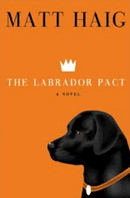
|
|
|||||

![]()
1. Choice of quotes
Quotes from David Beckham and William Shakespeare feature at the start of the novel. The David Beckham quote is a neat encapsulation of the perceived wisdom regarding the role of a husband and father. The Shakespeare quote, 'Wisdom cries out in the street and no man regards it’, is a potential challenge to perceived wisdom and therefore provides a useful counterbalance to the Beckham quote. I also thought ‘Wisdom cries out in the street’ was fitting for a novel where dogs may have the upper hand. Or paw. The quote is from Henry IV Part One, spoken by Falstaff to Prince Hal.
Also, Beckham and Shakespeare are both very different representatives of England, so I thought it would be fun to put them side-by-side.
2. Henry IV Part One
Henry IV Part One is my favourite Shakespeare play and loosely inspired the sub-plot for The Last Family in England. In the play Prince Hal is caught between following his duty as the future King of England, represented by his father King Henry, and the world of mischief and hedonistic self-indulgence represented by Sir Jack Falstaff. So in my novel Prince faces a similar predicament, caught between his Labrador mentor Henry and the mischievous Springer spaniel Falstaff.
Incidentally, although rarely performed nowadays, Henry IV Part One (along with Part Two) was more popular than Hamlet in Shakespeare’s own time. Queen Elizabeth I so loved the character of Falstaff that she commanded Shakespeare to write a play which centred around him. The result was The Merry Wives of Windsor, which like many other character spin-offs (such as A Nightmare on Elm Street 2 and Frasier) is not quite as strong as the original.
There are a number of textual references to the play. For instance, in the novel Falstaff calls Prince 'madwag' because of the way he wags his tail and in the Shakespeare version Falstaff greets Prince Hal by saying 'how now you mad wag' and always refers to him as a wag of some sort.
There were, of course, a variety of other conscious influences apparent when writing this book. Here is a rough mathematical formula, to illustrate these influences:

3. The spelling of ‘Family’
Readers will notice that the word family is sometimes spelt with a capital F and sometimes with a lower case f. When humans are speaking they obviously say ‘family’ and when dogs are speaking they say ‘Family’. This is because all dogs, not just Labradors, once worshipped the human family religiously. And so it is likely they would still talk of ‘Family’, just as many people in secular societies talk of ‘God’. I’ve also got Lapsang, the cat, saying ‘Family’. This is because I believe that she values the human family she lives with far more than she would have us believe.
4. The short chapters
Originally all the chapters were normal length, but then I decided to go through and chop them all up to make them shorter. The shortest chapter is the one called ‘sound’ which consists of four words, ‘There was a sound.’
You can’t beat short chapters, in my opinion, especially when they’re placed before longer chapters. They’re not only very user-friendly (especially for people who read on the tube), but they also inject pace and add atmosphere. In contemporary cinema it is a common technique to have a short shot of something before a longer scene. For instance, in Jerry Bruckheimer movies you’ll get a short flashy view of a cityscape before a long shoot-out.
Short chapters also help with pacing, and keep momentum going at the speed of a dog galloping in a park.
5.
A note on Springer spaniels
Springer spaniels are presented as a corrupting influence on all dog breeds
in the novel. Their belief in pleasure over duty is said to have jeopardised
the security of all human families.
I would like to distance myself from the views of my narrator at this point.
I have nothing against Springer spaniels. In fact, from the age of ten to eighteen I used to live with one. His name was Murdoch (and he has a cameo role in the vet scene at the start of the novel), and I loved him very much. He may have believed in pleasure over duty (in fact, I’m pretty sure he did), but that made him all the more fun to be around.
6. A note on cats
I have nothing against cats either. The character of the cat Lapsang in the novel may do cats a disservice, but the novel is written from a Labrador’s perspective and must therefore reflect a Labrador’s prejudices.
7. A note on Labradors
Obviously, I could only guess at what prejudices a Labrador might have as I have no immediate first-hand experience of being one, contrary to the rumours.